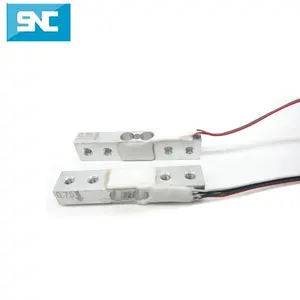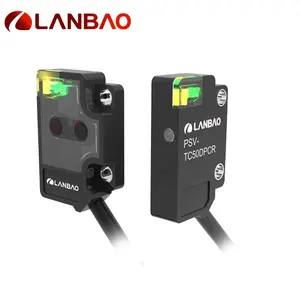
1kg Load Cell Sensor SC616C Low Cost Load Cell Micro Mini Load Cell 0.3kg 0.5kg 1kg 2kg 3kg Load Cell Sensor


The Sensor Lanbao Switch Sensor 25mm Dc 3/4 Wires Automation Photoelectric Sensors For Components Pass Counting























Automation sensors are integral to the modern landscape of industrial automation, playing a pivotal role in enhancing the efficiency and precision of various processes. These sensors are the eyes and ears of machinery, providing critical data that drives automation across numerous sectors.
Within the realm of industrial automation sensors, there exists a diverse array of types designed to cater to specific functions. Types of sensors used in automation include photoelectric sensors, which detect the presence and distance of objects through light transmission, and current sensors, which monitor and measure electrical currents in circuits. Direction sensors, IR sensors, and PIR sensors are employed for various detection tasks, from navigation to security. In the field of motion detection, options range from accelerometers to gyroscopes, each providing unique capabilities for monitoring movement.
The versatility of automation sensor technology allows for their application in a multitude of industries. In agriculture, sensors are used to optimize farming practices, while in the medical field, they contribute to life-saving diagnostic equipment. The types of sensors used in industrial automation are particularly crucial, enabling the monitoring and control of complex industrial processes. Additionally, the advent of home automation using Arduino and sensors has revolutionized the way we interact with our living spaces, making them smarter and more responsive.
The materials and design of sensors in industrial automation are selected based on the environment and application they are intended for. For instance, ATI force torque sensors are designed to withstand the rigorous conditions of industrial use. Similarly, Autonics sensors and controllers are crafted to offer reliability in various operational settings. The design of these sensors often involves robust materials capable of enduring extreme temperatures, pressures, and chemical exposures.
The advantages of employing types of sensors used in industrial automation are manifold. They lead to increased accuracy and consistency in processes, reduce the need for manual intervention, and enhance safety by operating in hazardous environments. Furthermore, sensors such as the Rockwell automation sensors are known for their durability and precision, which are essential in maintaining the high standards of industrial operations.
Choosing the appropriate type of sensor used in industry is crucial for ensuring optimal performance and integration. Factors to consider include the sensor's range, sensitivity, and compatibility with existing systems. For those involved in developing custom solutions, components like the ASBSV 8 LED 5 can be integral in DIY electronics and kits, offering flexibility and customization in design.
In conclusion, automation sensors are indispensable in the progression towards more intelligent and efficient industrial operations. Alibaba.com serves as a gateway for businesses to source these sophisticated components, connecting buyers with a vast selection of sensors to meet their specific industrial needs.